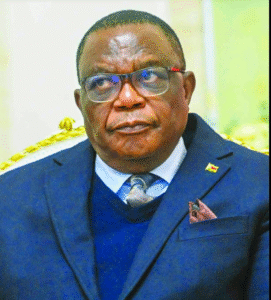MNANGAGWA’S 1000-YEAR CONFESSION EXPOSES ZIMBABWE’S TECH FAILURES

When President Emmerson Mnangagwa recently admitted that Zimbabwe is “almost 1000 years behind” Dubai in terms of technology, he might not have realised just how damning that statement was. His words, spoken while visiting the high-tech Dubai Police General Headquarters, were meant to express admiration for innovation. But what they really did was shine a blinding light on the deep failures of leadership, planning, and governance that have kept Zimbabwe stuck in the past.
To call this admission “candid” is generous. It is more accurate to call it an embarrassing confession from the head of a regime that has done very little to prepare Zimbabwe for the 21st century. While other nations leap forward into artificial intelligence, robotics, and digital economies, Zimbabwe continues to limp with a power grid that fails daily, a broken education system, and internet access that’s both expensive and unreliable.
Dubai’s AI-powered policing is impressive, no doubt. But for Mnangagwa to be “shocked” by it says more about his detachment from global progress than it does about Dubai’s innovation. The fact that he needed to travel thousands of kilometres to see technology in action is proof enough that his government has not taken digital transformation seriously.
Let’s be clear—technology does not fall from the sky. It is built. It is funded. It is taught. It grows where freedom, education, and investment exist. Zimbabwe has none of these things in sufficient supply.
For years, the ruling party has crippled the very pillars that make technology thrive. The education system is underfunded. Universities lack proper labs. Young, talented Zimbabweans leave the country in droves because there are no opportunities at home. Innovation is not encouraged; it is stifled by bureaucracy, corruption, and fear. Entrepreneurs are seen as threats instead of partners. Startups are suffocated by a hostile economic environment and no access to funding.
While countries like Rwanda are building drone delivery systems and smart cities, Zimbabwe is still trying to fix potholes and find clean water. That is not just a technological failure—it is a political one.
Even STEM education, the backbone of any tech revolution, is in crisis. Teachers are underpaid and demoralised. Schools lack basic equipment. Government focus remains on slogans and politicking instead of actual planning. The much-hyped National ICT Policy? Mostly forgotten. The innovation hubs? Underutilised and underfunded.
And yet, Zimbabwe has the talent. It has the brains. What it lacks is leadership with vision and courage.
If Mnangagwa’s comments are to mean anything, then the first step must be more than speeches. Zimbabwe needs a full reboot in how it thinks about education, investment, and youth. The country needs a new education model that prioritises coding, engineering, and science. It needs real investment into research. It needs laws that make it easier, not harder, to build tech companies. It needs leaders who understand that surveillance cameras are not the peak of digital progress.
Instead of marvelling at Dubai’s progress, Zimbabwe should ask: why not us? What’s stopping this country from becoming Africa’s tech hub? The answer, unfortunately, is right at the top.
Acknowledging a 1000-year gap is not enough. That gap didn’t appear overnight. It was built through years of corruption, neglect, and mismanagement. Closing it requires a government willing to release its grip on power and allow young people, entrepreneurs, and innovators to lead the charge.
Zimbabwe can catch up. But not with the same tired leadership that caused the delay in the first place.



